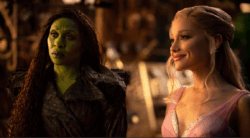Robert McNamara playing himself, outbursts of the director’s voice off-screen and montages that blend historical and artistic images make “The Fog of War” different from other, dry documentaries. Accompanied by the urgent and innovative score of Philip Glass (“The Hours”), McNamara recalls his wartime exploits with prompts from director Errol Morris.
The film can be most accurately considered a documentary, and creative film segments are designed to accompany historical audio clips. Director Errol Morris effectively uses still photographs of cabinet meetings and shots of dramatically lit tape reels to represent the media of the clips audible in the scene.
Chronicling the political atmosphere from World War II through the Vietnam War, the film attempts to portray former Secretary of Defense McNamara differently than the systematic, bellicose, and arrogant way that he has typically been depicted.
With the release of phone conversations with President Kennedy and recordings of cabinet meetings with President Johnson, McNamara initially seems to be in support of removing American military advisors in Vietnam.
In one such audio clip from Oct. 1963, McNamara suggests to Kennedy the removal of 1000 military advisors by Christmas of that year, and the removal of another 5000 by 1965. Unfortunately Kennedy was assassinated one month following that phone conversation, and with the rising of Johnson to office, there was a shift in U.S. governmental attitude.
In one of his board meetings, Johnson is heard criticizing McNamara’s position regarding the war and proclaiming that as the United States is losing the war, the idea of removing advisors from foreign soil is asinine. McNamara follows Johnson’s lead and eventually seems to agree with the plan to keep the American public uninformed as to the direction of war because he believes that they would not understand.
Also discussed in some detail are World War II and the Cuban Missile Crisis. McNamara recalls, with some emotional difficulty, American attack on and bombing on Japan during the war. He describes the events with raw detail and mentions a night in March 1945, when the lives of 100,000 Japanese citizens were taken. McNamara says with a look of realization that had the U.S. lost the war, he and many others would have been tried as war criminals. He asks the question, “what makes it immoral if you lose, and not if you win?”
To represent the sheer heft in civilian casualties, there is a scene of numbers falling from the sky like bombs, representing the deaths in Japan. This scene is interwoven with actual footage of bombs falling from military aircraft. The irony and mortality of the events are better understood with another image of a modern day street in Japan sped up, with opaque, slowly moving figures from the past overlapped. It suggests the way old Japan was destroyed, yet how the old culture still plays a part, even if opaque, in forming modern culture.
A repeating motif of dominoes lined up and falling down across a world map is repeated throughout, literally showing the “domino effect” in world affairs. In the end of the film, the footage is reversed and the dominoes go to their standing positions in the line, suggesting McNamara’s opinion of the impermanent quality of war and the fact that anything can happen.
McNamara’s actual message in the film becomes muddled, however. His statements that the government “should not apply power unilaterally” and should “reexamine our reasoning,” imply an anti-war message.
McNamara recognizes that the Vietnam War was carried out for the wrong reasons : “we saw it as an element of Cold War; they saw it as a civil war.” But in the end, McNamara refuses to answer any questions that take a true stance against the events of that time. He only commits to the belief that war is an element of human nature.
The title of the film is how McNamara chooses to sum up his message, that the “fog of war” is all that remains, and is what stands in the way of clear vision and understanding, after history has taken its chosen path.
Although the audience leaves feeling slightly unsettled about McNamara and the real message of the film, the personal conversations with Kennedy and Johnson that show the men for all they were, make “The Fog of War” valuable and worth seeing. The film successfully relates the wars and events of the twentieth century into a rolling snowball, dependent on all that has come before, and on some unknown downhill path only getting steeper.




